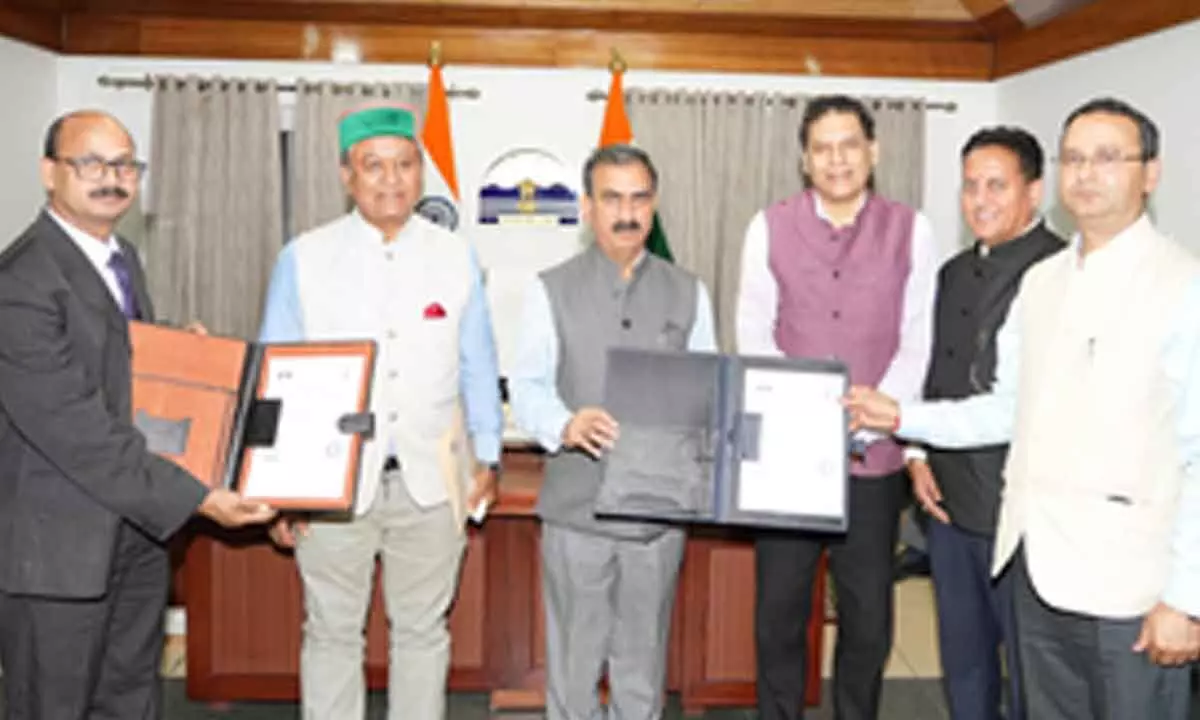Himachal signs pact with IMD for 48 automatic weather stations
Share :

The Himachal Pradesh government has signed a pact with the Indian Meteorological Department (IMD) to initially install 48 automatic weather stations for real-time data to improve forecasting and preparedness, particularly for agriculture and horticulture.
Shimla : The Himachal Pradesh government has signed a pact with the Indian Meteorological Department (IMD) to initially install 48 automatic weather stations for real-time data to improve forecasting and preparedness, particularly for agriculture and horticulture.
The network will later be expanded to the block level in a phased manner. Currently, 22 automatic weather stations of the IMD working.
An official statement quoting the Chief Minister said this network of weather stations would significantly improve the management of natural disasters like excessive rainfall, flash floods, snowfall and cloudbursts by enhancing early warning systems and emergency response capabilities.
Additionally, the government reached a consensus with Agence Française de Development (AFD) to provide Rs 890 crore for a comprehensive disaster and climate risk reduction project.
The Chief Minister said: “The project will help transition the state towards a more resilient disaster management framework, focusing on strengthening infrastructure, governance, and institutional capacity.”
He said the funds would be directed towards strengthening the Himachal Pradesh State Disaster Management Authority, District Disaster Management Authorities and both state and district emergency operations centres.
Additional efforts include conducting climate change vulnerability assessments at the village level and developing an early warning system for natural disasters.
As per the statement, the initiative will also expand fire response capabilities by establishing new fire stations and upgrading existing ones to handle hazardous material emergencies.
It aims to build bioengineering nurseries for landslide mitigation, create earthquake-resistant infrastructure, and improve last-mile connectivity through an enhanced satellite network.
Continuous monitoring will be carried out through a dedicated software platform. Further support may be provided through a technical assistance grant from France under a bilateral cooperation agreement, said the Chief Minister.
“A state institute for disaster management would be established, besides constructing helipads to enhance disaster response, and a new state disaster response force (SDRF) company would be formed to strengthen local disaster management efforts,” the Chief Minister added.
Multiple cloudbursts on August 1 with the epicentre in Shrikhand Mahadev region flooded three streams originating from the peak. The Samej rivulet, a seasonal tributary that merged into the Satluj river just seven km downstream from the disaster spot, resulted in the most significant disaster, washing away significant Samej village.
Simultaneously the flash flood in Malana rivulet led to the breaking of the Malana dam and the Khurpan rivulet caused severe flooding in Bagipul.
Torrential rains, cloudbursts and flashfloods have become a regular feature in the hill state of Himachal Pradesh in recent years.













